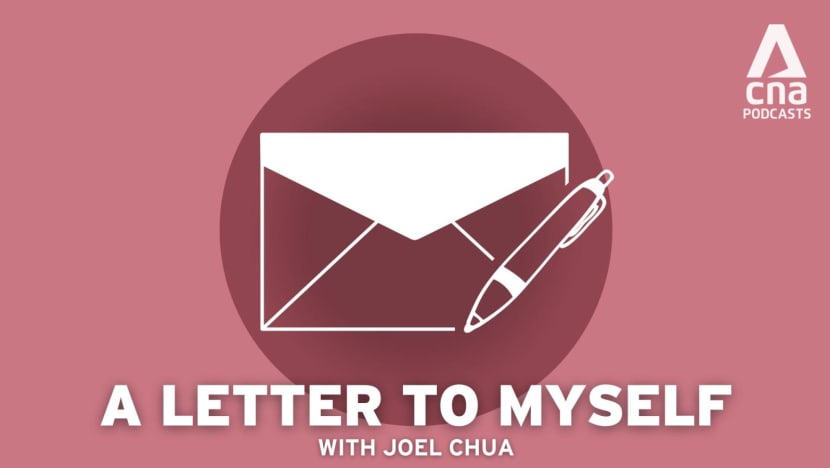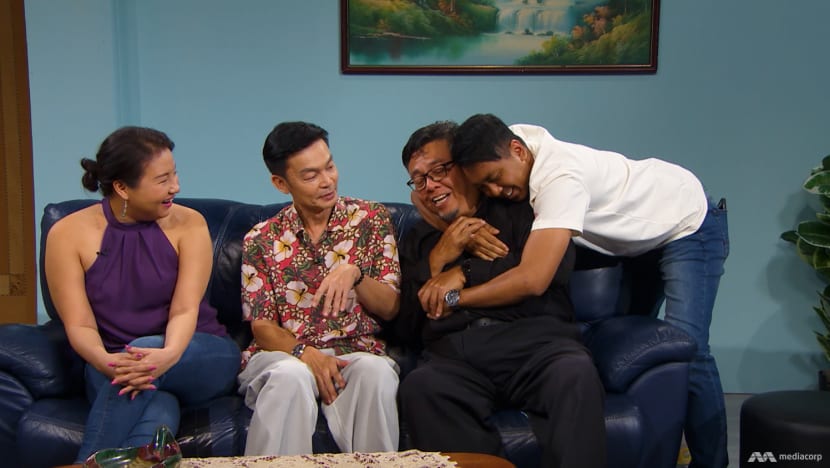A Letter to Myself Podcast: How letters, love and laughter helped Suhaimi Yusof overcome stroke
When he was lying in hospital, anxious about his health and future, Suhaimi Yusof decided he would tap into what made others happy: His sense of humour. He shares how it helped him recover on this episode of A Letter to Myself.

Be inspired by the person behind the personality on "A Letter to Myself", as newsmakers, thought leaders, and everyday people reveal the most valuable lessons they've learned through life.
SINGAPORE: In April this year, renowned entertainer Suhaimi Yusof found himself among Singapore’s growing community of stroke survivors.
Suhaimi was struck by a rare cerebellar stroke. This affected the base of his brain, disrupting his equilibrium and depriving him of his balance – a sensation he describes as deeply disorienting.
“(The stroke) affected, almost permanently, my way of viewing the world with balance,” Suhaimi explained. It made the simplest acts akin to walking “on a tightrope”. Tasks he once performed without a second thought became daunting challenges.

In the days that followed, the 55-year-old wrestled with frustration and fear. An actor known for his larger-than-life presence and boundless humour, he found himself suddenly confined to a hospital bed, staring at a white ceiling. It was a jarring shift from his usual active lifestyle.
“I said (to my wife): ‘This is not me,’” he recalled. “I have to get out of the bed as quickly as possible.”
Determined to regain control over his life, Suhaimi began focusing all his energy on rebuilding his strength. But what does fighting back look like when your body refuses to cooperate?
For Suhaimi, it started with small steps - literally. Therapy sessions that began with just standing upright slowly progressed into walking. And then, there was his secret weapon: Humour.
LAUGHTER IS THE BEST MEDICINE
In hospital, the veteran entertainer found an unexpected audience. Even at his lowest, he cracked jokes with nurses, teased doctors and visited fellow patients in nearby wards, determined to find joy in the bleakest of circumstances.
My wife said: ‘(Once) you started disturbing the receptionist, I knew (you are) recovered.’



But this humour wasn’t just for laughs. It was also his way of coping with fear and uncertainty, a reminder to Suhaimi – and those around him – that life, even with all its unrelenting twists, still offers moments of joy.
Suhaimi quipped that while he may have lost his balance, he certainly didn’t lose his sense of humour.
Yet, beneath the jokes, was a deeper practice that anchored him during his recovery. During those quiet moments, Suhaimi began crafting letters to himself – a habit he calls his ‘secret life’.
The letters became even more crucial during the long, sleepless nights in the hospital. In those quiet moments, surrounded by the hum of machines and the cold glow of blinking lights, Suhaimi found himself asking, “When you wake up in the middle of the night, surrounded by all this not-so-encouraging environment – tubes, blinking lights, and machines – you go like, what do you do? Who do you talk to?”
I’ve been making people laugh. Now, in the darkest moments of my life, who will make me laugh, who will entertain me?
For him, these letters became short notes of encouragement, a lifeline for days when hope felt a little more elusive. “I wrote to myself: Dear me, no one can make you sad if you don’t want to be,” he reflected.
Suhaimi now takes on life with a fresh outlook, new purpose -- and the same sense of humour. He also regularly speaks at events to raise awareness of stroke prevention and recovery.
Suhaimi credits his fast recovery to determination, his supportive family, and a team of dedicated medical professionals. But above all, he attributes it to the mindset he rediscovered during those weeks he spent in the hospital.
What would Suhami say in a letter to his younger self?
(This interview was first broadcast on 7 August 2024.)
Listen to Suhami’s story on A Letter to Myself. This podcast, hosted by Joel Chua, features people with remarkable life lessons to share and airs every weeknight on CNA938.
If you know someone with an inspiring story, write to cnapodcasts [at] mediacorp.com.sg.
Follow A Letter to Myself on Apple Podcasts or Spotify.













